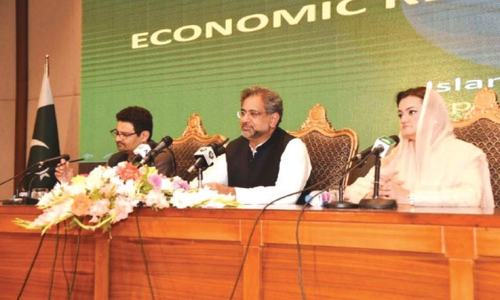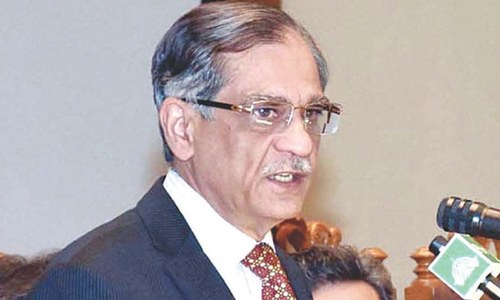THE new amnesty scheme, the eighth in Pakistan so far, aims to bring a greater proportion of people into the tax net. Increasing the tax base is rightly a top priority in a country where less than 0.61 per cent of the total population filed tax returns in 2017.
Tax collections are stagnant at around 10pc of the gross domestic product, the balance of payment is disturbed and foreign reserves are eroding.The amnesty offers historically low income taxes, doubles minimum taxable limit and charges noticeably lower on taking amnesty.
At face value, the scheme has all the constructs of being successful. The history of amnesty schemes in Pakistan however, is not a very encouraging one. No amnesty has been able to generate a sizeable number of new taxpayers or revenue.
The amnesties of 1958 and 2000 helped file only 71,289 and 79,411 newly declared. The amnesty of 2008 generated the highest collection of Rs2.8 billion at the announcing rate of 2pc, while that of 1997 could raise only Rs141 million.
Analysis: An amnesty for all
Compare it to the Indonesian amnesty bill of 2016 which added at least 745,000 taxpayers declaring more than $330bn of assets. The recent amnesty however, has some strong areas. First, the global environment is conducive to amnesties.
The world is clamping down hard on any undeclared assets, cash or property. This will push Pakistanis to take amnesty and legalise the assets. Secondly, the charging rate is considerably lower with a maximum rate of 5pc when the person wants to come into the tax net but wants to maintain assets outside the country.
The government must delineate well-structured post-amnesty taxation reforms package and legal action against non-compliance. Only then can one anticipate significant gains in the tax base
Compare it to the 45pc charge rate in amnesty offered recently in India to its citizens. The overwhelmingly lower new income tax rates would motivate people to come into the tax net. For example, the maximum limit of 35pc income tax is now reduced to 15pc.
Similarly, those in the income group paying 17pc earlier will now pay 10pc. Lastly, the simplification of tax filing shall add to the declaration number since using the national identity card number as the tax number will result in every one being automatically enlisted in the database.
Nonetheless, some faults in the amnesty scheme if not corrected may outweigh its merits. First and foremost, doubts about the future course of action of the next government may deter potential declarations.
Read: Amnesty mystery
Offered by an outgoing government, it not only lacks political ownership but also suffers from uncertainties about future validation. Announcing the scheme at the beginning of the government’s tenure would have added to the odds of success.
Political parties have not been taken on board, as denoted by quick resistance from opposition parties. Similarly, uncertainty regarding the position of provinces is likely to dampen declaration rates.
The amnesty has not been followed by a set of structural reforms to consolidate the gains whatsoever. People do not pay taxes because they believe they will not get caught. A solid tax base can only be warranted through an efficient tax system that ensures that evasion will eventually lead to punishment.
Incentives alone may not suffice. Present amnesty fails to outline any penalties, leaving potential candidates unable to do any cost-benefit analysis required to make up their minds. Some legal issues may also compromise the gains from amnesty.
For example, the government needs a constitutional amendment to enforce a model similar to the Indian one of buying property by paying some additional price if it thinks that property value is under-reported.
As the current political landscape denotes, such an amendment will not be easy to pass. This will push the declaration rate lower. Offered charges of taking amnesty will bring smaller revenue even if declarations are made.
Additionally, there will be complete tax exemption on annual income up to Rs1.2m. Many will fall out of the tax net. The scheme also does not offer any distinction between declared assets that are repatriated for the purpose of investment and those not destined to investment.
The common practice is to charge a lower rate on the former. To minimise reluctance to take amnesty, the government must take steps to convince the opposition that the scheme is well-designed and helpful to the economy.
The government must delineate well-structured post-amnesty taxation reforms package and legal action against non-compliance. Only then one can anticipate significant gains in the tax base. Under present arrangements, gains are hard to come by.
The writer is heads the Policy Solutions Lab at Sustainable Development Policy Institute, Islamabad.
Published in Dawn, The Business and Finance Weekly, April 16th, 2018
















































